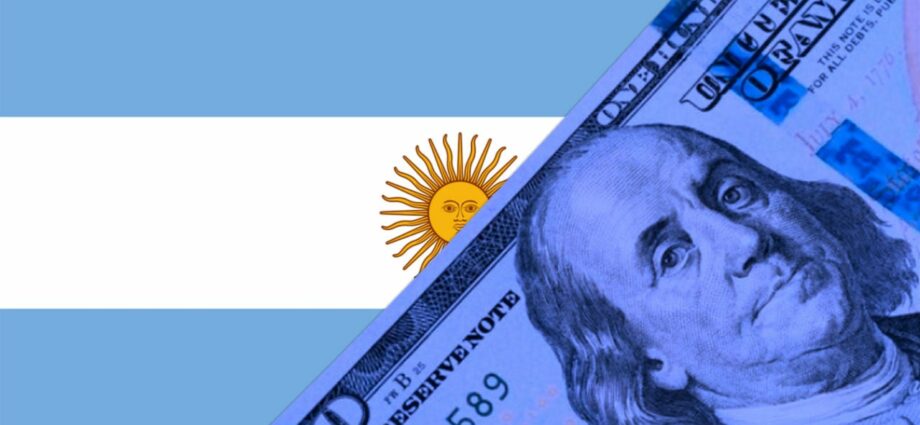Javier Milei, a presidential candidate for the next election in Argentina, has presented a dollarization plan to fix the economy of the country if elected. The proposal, which has supporters and detractors, would aim to solve the historic devaluation of the Argentine peso and the 100%+ interannual inflation that Argentina registered in March.
Dollarization Surges as Option to ‘Fix’ Argentine Economy
Argentine economists and the population are debating dollarization as a possible solution to the devaluation and inflation problems the country is currently facing. The proposal, presented by Javier Milei, one of the strongest contenders in the next October presidential election according to several polls, includes the abandonment of the Argentine peso as a fiat currency, and the conversion of all deposits and reserves of the central and private banks to U.S. dollars.
According to Milei, this would be one of the more feasible solutions to the myriad problems the national economy is facing. Earlier this month, he stated:
If you want to end the scam of monetary emission to cover for the treasury and end inflation, given that Argentine politicians are thieves, the only way is to close down the Central Bank and, at the beginning [of my government], dollarize [the economy].
While Milei has not determined the exchange rate at which its plan would convert pesos to dollars, to him the social cost would be zero, as the dollarization would end inflation, which is hitting Argentine citizens hard.
Cost and Effects of the Proposed Dollar Switch
Milei’s plan, which is not new, is estimated to cost the country $40 billion. The Argentine peso has lost more than 15% of its value in less than ten days against the U.S. dollar, something that has given an upswing to Milei’s campaign. This in a country that has traditionally used the dollar as a savings option, even more so after the so-called “corralito” was introduced — a measure which restricted the number of dollars Argentines could withdraw from private banks back in 2001.
One of the effects of the new measure, if implemented, would be the abandonment of establishing a national monetary policy. This is being criticized by several analysts, that state the move would tie these policies to what the U.S. Federal Reserve dictates, which may or may not be beneficial to Argentina’s economy.
Others, like former Treasury Minister Domingo Cavallo, believe that the dollarization will be an option to “stabilize” the country in 2024 or 2025, before making a series of reforms to lessen the effect of this measure on wages, pensions, and other assets.
Source: Read Full Article
-
Meta Will Continue to Push Metaverse Investments in 2023 According to Head Of Reality Labs – Metaverse Bitcoin News
-
Ether staking is too difficult, community members claim
-
Anonymous user sends ETH from Tornado Cash to prominent figures following sanctions
-
Breaking: Russian Authorities Cancelled Plans For National Crypto Exchange, Focusing On Regulating Local Exchanges – Coinpedia Fintech News
-
‘Thank God’ El Salvador doesn’t have any Bitcoin on FTX, CZ clarifies

